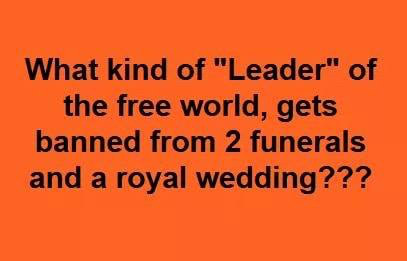A psychological profile of T’s inner workings and his unstable responses to world events while his own power center being threatened. Interesting to note what might be contributing towards his ever-changing quixotic (unrealistic) statements towards his critics (press/Dems) the legal threats (Mueller/Rosenstein/Sessions) and why he likes strongmen (no one questions their authority.)
Why is President Donald Trump behaving in ways that seem ever more irrational, impulsive, self-destructive, dangerous and cruel? Many Americans have been shocked by Trump’s behavior, most recently by his taking the side of a known enemy in Vladimir Putin and Russia over his own intelligence community.
Our assessment is based on descriptions from those who have worked with him, his own voluminous responses to real situations in real time, and above all by our unique vantage points. One of us is a forensic psychiatrist who has treated more than 1,000 individuals with characteristics similar to Trump’s. The other spent 18 months shadowing, observing and interviewing Trump in order to co-write The Art of the Deal.
Trump’s increasing grandiosity is evident in the superlatives he uses to refer to himself—“stable genius” among them—and in the way he has consolidated his power by getting rid of aides and Cabinet members who have challenged his authority. Because no person or circumstance can possibly satisfy his needs, nearly everyone in his life eventually becomes expendable, and he becomes more and more isolated.
Trump’s growing paranoia is reflected in the vitriolic comments he has made about a range of perceived enemies, including Democrats and Republicans, allies in the G-7, the intelligence community, the news media and immigrants. His hunger for absolute power is evident in his bizarrely admiring words about despots, including North Korea’s Kim Jong Un, Russia’s Vladimir Putin, China’s Xi Jinping, Turkey’s Recep Tayyip Erdoğan and the Philippines’ Rodrigo Duterte. His frequent lies reveal his need to redefine reality when the truth doesn’t serve his needs.
Given Trump’s volatility, incuriosity and severely limited attention span, his decisions are not significantly influenced by reflection or analytical reasoning. Because he cannot tolerate even the mildest criticism, he is largely immune to learning and growth. Instead, unable to regulate his emotions, he reacts angrily, and often with threats of revenge, to any challenge to his authority. Even success provides him with only momentary satisfaction.
Trump’s psychological disposition has profound implications for our personal, national and international security. Unfortunately, Americans remain deeply reluctant to talk openly about mental health or to recognize how profoundly it can influence behavior. Because the president’s level of mental impairment is so unusual to observe, it is difficult for most of us to understand what catastrophic desperation such people can feel to fill their own inner sense of emptiness.
Trump described to Tony a cold father with whom his relationship was “almost businesslike” and a mother who was mostly uninvolved in his life. Through Bandy’s work interviewing men who were deprived in childhood of the love and support necessary to develop a core self, she concluded that the stable internal center that holds their beliefs, principles, attachments, loyalties—and even their capacity for humanity—never gets well established.
Instead, most such men become almost completely dependent on others for their sense of self-worth. They become hypersensitive to slights. In the most extreme cases, their envy can prompt them to take sadistic pleasure in tormenting perceived enemies, and those they think are getting more respect than they are. In Trump’s case, his need to demonstrate over and over that he is worthy of admiration overwhelms his capacity to focus on nearly anything else.
While our elected officials and much of the news media have avoided the topic of Trump’s mental health, it is clear that our adversaries have carefully studied his psychological weaknesses and determined how to use them to their advantage, as we saw during his negotiations with Putin and Kim Jong Un. Ironically, our own intelligence community does just this sort of analysis about foreign leaders.



